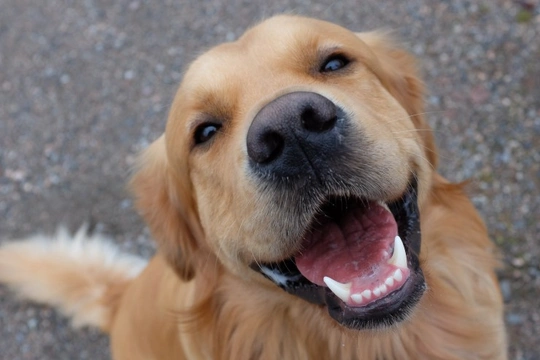
Does anything designed to freshen dog’s breath actually work?
Given the type of diet that dogs have and also, the type of things that they are apt to eat and scavenge even when they are not supposed to, it is certainly fair to say that getting a close-up blast of dog breath in your face is far from pleasant!
Many dog owners hold the mistaken belief that bad breath is normal and acceptable for dogs, but it can often indicate dental problems of other issues, and is really not acceptable-something that people often only really begin to realise when the dog’s breath is so foul that it offends everyone around them!
Bad breath in dogs can be a fairly annoying problem, and if your dog’s breath is particularly foul, it is likely to affect more than their breath alone-when they lick their coats, it will transfer the smell across their whole body, which of course make it all worse!
Because so many dog owners wish there was a way to improve their dog’s breath, there are a reasonably large number of different products and services marketed to dog owners that claim to do just this-but do any of them really work, or are they just a waste of money? In this article, we will look at some of the various things that purport to freshen dog's breath, and assess whether or not they are actually effective. Read on to learn more.
Brushing the teeth
If your dog’s teeth are generally in good condition (not suffering from any cavities or other acute problems) brushing your dog’s teeth a few times a week using a special toothbrush and a toothpaste designed for dogs can make a big difference in the medium to long term.
Brushing the teeth removes debris and food particles from the surface of the teeth and gums, so that they do not get the chance to fester and smell foul-but this effect only works in the short term. The real value of brushing the teeth is the removal of bacteria that attack the teeth and lead to foul smells, and limiting and reducing the plaque and tartar on the teeth to improve their condition.
It is never too late to start brushing your dog’s teeth-if your dog is older, it may also be a good idea to get your vet to assess the condition of their dental work too, in order to let you know if your dog might need remedial work first, to provide a clean slate to start with.
Dental surgery
Dogs whose teeth are in very poor condition or that have a significant build-up of plaque and tartar on their teeth are likely to have very bad breath, and this will not usually be improved to any great extent by brushing alone.
In this situation, booking your dog in for a veterinary dental procedure under sedation is the best approach, and your vet will be able to get right down into your dog’s mouth and remove any rotting teeth, tartar and plaque, which will immediately improve the smell of your dog’s breath. This also provides a good basis to start a tooth-brushing regime at home to keep your dog’s breath palatable in future!
Water supplements
There are various different liquid supplements marketed to dog owners, which are designed to be added to the dog’s drinking water to help to keep their teeth in good condition and their breath fresh. Many of these are simply fluoride supplements, however, and these are not necessary as tap water contains fluoride anyway.
Some supplements on the other hand contain enzymes or neutralising agents that will help to tackle bad breath from within-however, used alone, these will make no real difference to the condition of your dog’s teeth or breath.
Dental rinses
Similar to water supplements, you can buy a range of liquid dental rinses for dogs, which are designed to be squirted into the dog’s mouth as a type of mouthwash. These may have a short-term masking effect on foul breath, but this will not last long-much as using a mouthwash alone without brushing is only a short-term fix for people, and will not improve the condition of the teeth and gums.
The dog’s diet
One common but often overlooked cause of bad breath in dogs is dietary-what your dog eats and how suitable it is for them can affect how their breath smells too. Feeding a good quality complete diet usually covers all of the bases for most dogs, but if your dog is sensitive to regular food or has food allergies, this can lead to digestive upsets that in turn cause bad breath.
Herbs and food supplements
Herbs like parsley can be chewed to help to freshen the breath, and they also work when digested to neutralise foul smells and help to prevent diet related bad breath, but again, on their own rather than used in combination with proper dental care, are unlikely to prove effective.
Enzymatic pastes and powders
For people who are reluctant to brush their dog’s teeth or for dogs that will not tolerate this, there are various different pastes and powders available that claim to help to tackle bacteria and plaque by means of active enzymes. This might seem like an easy, quick fix in place of brushing, but they are not hugely effective without brushing the teeth too.



